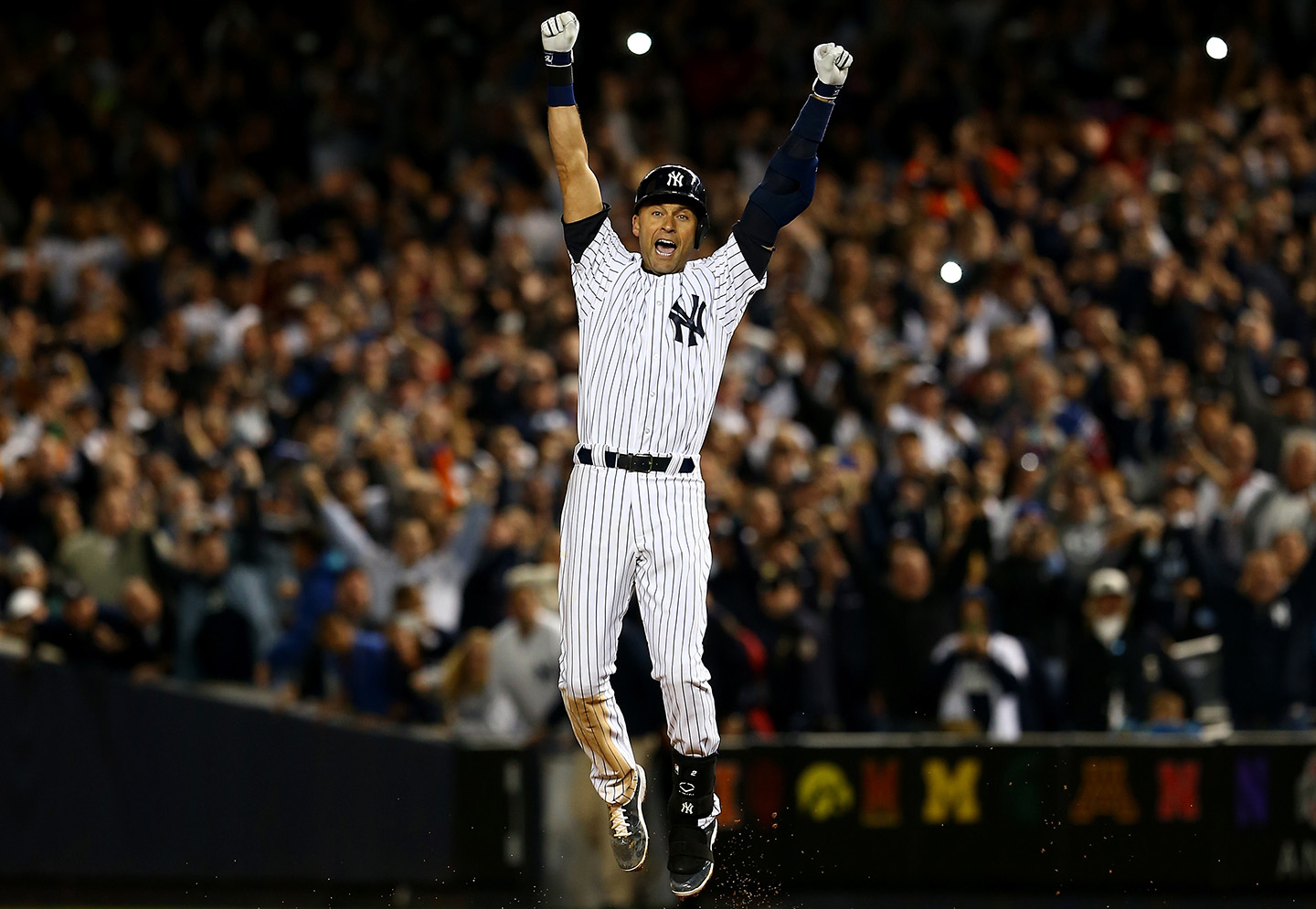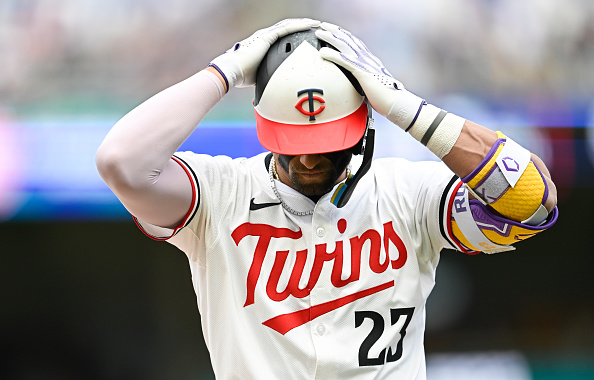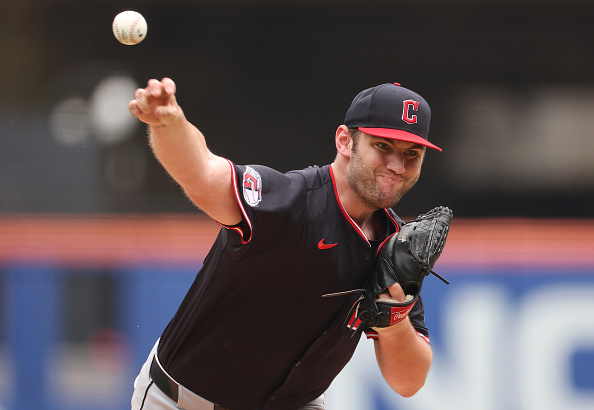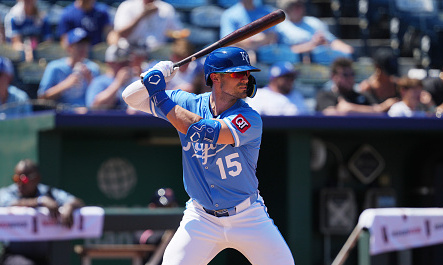Around this time every year, baseball talking-heads around the country begin to talk about their respective Hall of Fame ballots.
While many of the ballots that’ll appear on your Twitter feed will bear little meaning in the actual voting process, it does begin to open eyes and force you into looking at who should and shouldn’t get recognized as one of the best in this game’s 149-year history.
Before diving into the premise of this article, let’s take a look at some of the notable greats making their first appearance on the ballot:
SS Derek Jeter, OF Bobby Abreu, 1B/DH Jason Giambi, LHP Cliff Lee, and RHP Jose Valverde
While only one of these is a proverbial lock to get inducted, that doesn’t mean a case can’t be made for all five of these All-Stars.
However, that’ll be settled later on. Here are my top-10 Hall of Fame cases for the 2020 voting period, along with my predicted team they’d don on their plaque.*
(*Does not include the Veteran’s Committee)
1. Barry Bonds, OF, San Francisco Giants | Eighth year on the ballot
There is certainly a lot of controversy surrounding a player like Bonds. After all, despite never failing a drug test, the eye-test would indicate that there was certainly a shift in physique as Bonds entered the “end” of his prime. That being said, you still need to put the bat on the ball to be successful, and nobody was close to as good as Barry Bonds at doing that through the duration of his 22-year career.
Bonds ranks tied for third all-time in wRC+ with 173, with Babe Ruth and Ted Williams being the only two ahead of him. On top of that, Bonds is the all-time home runs leader (762) and is second all-time in fWAR (164.4). Also worth noting is that Bonds holds the all-time record for walks (2,558) and intentional walks (688).
The next closest to the latter number is Albert Pujols with 311.
Need any more proof that Bonds is one of the best hitters ever? Check out SB Nation’s “Chart Party” video titled, “What if Barry Bonds had played without a bat?”
2. Roger Clemens, RHP, New York Yankees | Eighth year on the ballot
Similarly to Bonds, Clemens is a guy who takes with him the controversy of perceived performance-enhancing substance use. Like Bonds, he never failed a test, but that asterisk will follow him for the foreseeable future.
That is unless he sees himself inducted into the Baseball Hall of Fame, which he certainly has a shot at doing, given the fact he’s a seven-time Cy Young Award winner, seven-time winner of the ERA title, and a two-time pitching Triple Crown winner.
In Clemens’ 24-year career, he posted 354 wins (ninth all-time), a 3.12 career ERA, a 3.09 FIP, and an ERA+ of 143 (12th all-time). Combine that with his 4,671 strikeouts (third all-time) and his career fWAR of 133.7 (highest for a pitcher all-time), and you’ll see that all the proof is in the pudding.
3. Larry Walker, OF, Colorado Rockies | 10th year on the ballot
This is it for Larry Walker: his 10th and final year of eligibility on the ballot. While he can always hold out hope of getting in on the Veteran’s Committee, the fact that it’s even come to this is a bit concerning.
Walker played 16 full seasons in Major League Baseball, and after his rookie year, his OPS never dipped below .800. During his seven-year peak, Walker slashed .344/.438/.624 with 152 wRC+. During those same seven seasons, only six players had higher wRC+ (min. 4,000 PA).
But there’s more to it than his bat, as Walker also won seven Gold Gloves in his MLB career on top of three batting titles, three Silver Slugger awards, and an MVP.
4. Billy Wagner, LHP, Houston Astros | Fifth year on the ballot
Pitchers say that the toughest outs to get in a ballgame are the final three. No matter what the score is, the hardest thing to do is slam the door against an opposing lineup of guys determined to beat you.
That was the job that Billy Wagner was tasked with during his 16-year MLB career. During that stretch, the southpaw tallied 422 saves (sixth all-time), 1,196 strikeouts (sixth all-time amongst relievers), and is 10th all-time in reliever ERA (2.31).
The seven-time All-Star also had a sub-one WHIP (0.998) and had an ERA+ of 187, meaning he was 87 points above league-average in terms of run prevention.
5. Derek Jeter, SS, New York Yankees | First year on the ballot
This one is probably the biggest lock on the entire ballot. While the final two seasons of his career were certainly forgettable, to say Derek Jeter isn’t one of the best shortstops in baseball history would be nothing short of blasphemous.
In 20 seasons with the New York Yankees, Jeter tallied 3,465 hits (sixth all-time), an .817 career OPS, and was a 14-time All-Star.
He’s one of the best players in the history of the game’s winningest franchise, and nothing I say will make him any more or less likely to be inducted.
6. Manny Ramirez, LF, Boston Red Sox | Fourth year on the ballot
There are many players on this ballot who have steroids shadowing them each and every season they appear on the ballot.
Manny Ramirez is not immune to this, as he received multiple suspensions for performance-enhancing substance use in his career. However, much like Bonds before him, PEDs don’t make you any more likely to make solid contact with the baseball.
Ramirez finished his career with 555 home runs, 2,574 hits, as well as 12 All-Star Game appearances. He quite frankly is one of the best right-handed hitters of all-time and deserves to be recognized as such.
7. Curt Schilling, RHP, Boston Red Sox | Eighth year on the ballot
Listen, it isn’t a Hall of Saints. It’s the Major League Baseball Hall of Fame. Therefore, Curt Schilling should be looked at more for what he did as a player opposed to what he’s said since he retired from the game.
The player did everything to get Hall of Fame recognition. Schilling is one of just 118 pitchers to win 200 games in their respective careers. While being one of 118 isn’t exactly eye-popping, it’s worth noting that 3,145 pitchers qualified here.
On top of wins, Schilling is 15th all-time in strikeouts with 3,116, and 20th all-time in pitcher fWAR at 79.8.
He’s one of the greatest pitchers to ever live, and he deserves a plaque.
8. Andruw Jones, OF, Atlanta Braves | Third year on the ballot
Andruw Jones was never recognized as the best player in his league, but that shouldn’t discredit him from Hall of Fame recognition. He was a steady player for 17 years. While steady makes you seem more of a “Hall of Very Good” player, hear me out on this one.
Jones’ seven-year peak, ranging from 2000 to 2006, saw him hit 262 home runs, as well as slash .269/.348/.517 with a .367 wOBA.
During that stretch, he finished fifth in home runs and fourth in fWAR.
Oh, and he was awarded 10 Gold Gloves in his career, showing that he is one of the game’s best defensive center fielders of the 2000s.
9. Todd Helton, 1B, Colorado Rockies | Second year on the ballot
Much like Larry Walker, Todd Helton is going to get a lot of unwarranted flack for playing at Coors Field.
However, it’s not his fault that he played his entire career for the Rockies. If he played somewhere else and struggled, maybe there’d be an argument –– but he didn’t. So let’s base him off of the player he was, shall we?
Helton played 17 years as the Rockies’ first baseman. During those seasons, he slashed .316/.414/.539 with a 133 OPS+. On top of that, he was a five-time All-Star, four-time Silver Slugger, and a two-time Gold Glover in his career.
But where does he rank all-time? Among first basemen with a minimum of 4,000 plate appearances, Helton ranks eighth all-time in on-base percentage, 13th in slugging percentage, and tied for 13th with a .405 wOBA.
A good comparison for Helton would be Hall-of-Famer Jeff Bagwell, who Helton beats in average, on-base, OPS, and hits.
10. Adam Dunn, OF/DH, Cincinnati Reds | First year on the ballot
Alright, time for some fun.
One of the more interesting guys to sneak onto the ballot for the first time is slugger Adam Dunn.
That’s all he was, a slugger. He didn’t do anything to write home about as a base-runner, he was one of the worst outfielders in the game on defense, and hit under .260 nine of his 14 years as a major-leaguer.
So, why does Adam Dunn have a Hall of Fame case? It’s quite simple, actually. When you think about Hall-of-Famers, you tend to think of players who changed the game of baseball. Well, Adam Dunn certainly did that, creating the era of three true outcomes (walk, strikeout, home run) that we call today’s game.
Dunn registered 8,328 plate appearances in his career, and a whopping 49.9 percent of them resulted in a home run, walk, or strikeout.
That being said, Dunn was actually a very productive player at his peak. From 2004 to 2010, Adam Dunn was second in baseball in home runs behind Albert Pujols, averaging a stunning 40.1 home runs per season. On top of that, he was 10th in wRC+ with 134 (min. 4,000 plate appearances), and ninth in slugging percentage (.533).
Dunn made just two All-Star Games in his career and managed to revolutionize the game of baseball, something that even some of the greatest players couldn’t do. He’s certainly a longshot to get inducted into the Hall and he may be a one-and-done on the ballot, but there’s certainly a case to be made for him.








2 Responses
Jordan I totally disagree about Dunn. Lots of three outcomes and not much else.
Hey Chris! While I agree that there were a lot of three true outcomes, he completely changed the game to home run or bust. Revolutionized it. Plus he was one of the biggest power threats in the MLB when he played